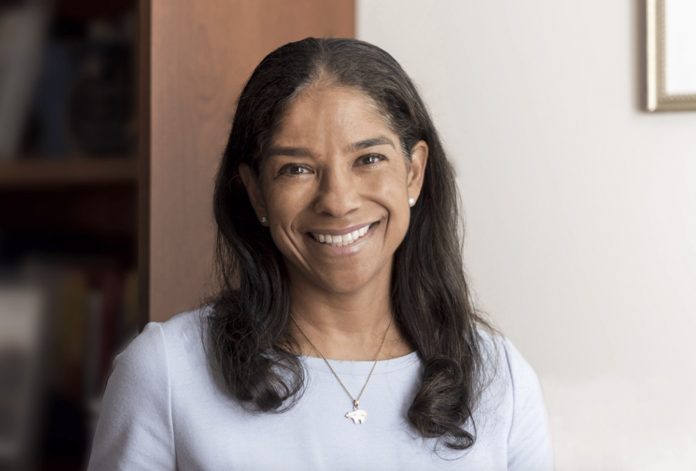Dr. Carol Brown wants you to know exactly what your risk factors are and when its time to see a doctor. She is a board-certified gynecologic oncologist which means her specialty is diagnosing and treating cancers that affects a woman’s reproductive organs.
For more than 25 years, she has used her skills as a surgeon to provide high-quality and compassionate care to women with ovarian, uterine, cervical, and vulvar cancer at Memorial Sloan Kettering Cancer Center, and this year, Dr. Brown serves as the 50th president of the Society of Gynecologic Oncology.
People of color, including Asians, Hispanic/Latinos, American Indians and Blacks are affected by some cancers at higher rates than other groups. Blacks in the U.S. have the highest death rate of any racial/ethnic group for lung, colon, breast, prostate and uterine cancer.
The causes of these inequalities are complex, but through research we are learning that biologic differences in the cancer itself may explain many cancer disparities experienced by Blacks and other diverse populations. Socioeconomic factors, especially poverty, also contribute to cancer disparities through barriers to high-quality cancer prevention, early detection, and treatment information and services.
The risk of being diagnosed with cancer increases with age because most cancers require many years to develop. According to data from the American Cancer Society, about 1 in 2 Black men and 1 in 3 Black women will be diagnosed with cancer in their lifetime.
The lifetime probability of dying from cancer is about 1 in 4 for Black men and 1 in 5 for black women. The one thing that most people don’t know about cancer is, that today, unlike in the past, most cancers can be cured with the right diagnosis and treatment, and even more cancers can be prevented by pursuing a lifestyle minimizes their risk.
The World Cancer Research Fund has estimated that about 20% of cancers that occur in the US are due to poor nutrition (including excess alcohol consumption), physical inactivity, and excess weight, and thus could be prevented.
The rate at which Black women in the U.S. are dying from cervical cancer is comparable to that of women in many poor nations. What makes these findings especially disturbing, is that the majority of cervical cancer is caused by a virus called Human Papilloma Virus(HPV).
Between primary prevention- which means getting ourselves and our children, boys and girls, vaccinated with the HPV vaccine so that we never get the virus- and secondary prevention-which means getting your PAP smears on a regular basis so that cervical pre-cancer can be detected early and treated- cervical cancer is an almost completely preventable disease. Many studies have shown that the most common reason Black women and any women in the U.S. die from cervical cancer is that they have not had recommended screening with PAP smears.
Many cervical cancer screening guidelines say that women over 65 who have had regular screening with negative results don’t need to have PAP smears. But based recent research that shows almost 20% of cervical cancer in the US occurs in women over age 65 and the research that death rates for cervical cancer are highest for Black women over 65, I recommend women continue to get regular cervical cancer screening past age 65 and for at least as long as they are sexually active.
The best way for women to detect GYN cancer in an early stage is to get vaccinated against HPV to prevent cervical, vulvar, and vaginal cancer; to get regular screening tests, either PAP smears or HPV testing for these same cancers with your OB-GYN or primary health care provider; and most importantly to know the signs and symptoms of gynecologic cancer so that cancers of the uterus and ovary, for which there are no screening tests available, can be found in the earliest possible and curable stage.
Many of the signs of uterine and ovarian cancer are commonly experienced by most women at some point in their lives. But when things like pelvic pain, bloating, bleeding or discharge happen for a long period of time and you have no other explanation; see your doctor and ask about your risks for ovarian and uterine cancer and whether your symptoms could be a sign of these diseases.
Knowing your family history can be especially important for reducing your risk and even preventing uterine and ovarian cancer- for both of these there are known mutations in cancer-causing genes that can be passed down from one generation to the next.
There are medical and surgical options for both uterine and ovarian cancer that can help women who are at increased risk because of their family history from every getting the disease. For more information about GYN cancers and clinical trials please check out these great videos put together by my colleagues at the Society of Gynecologic Oncology at https://www.sgo.org/patients-caregivers-survivors/clinical-trials/.
What You Need To Know About Cancer






